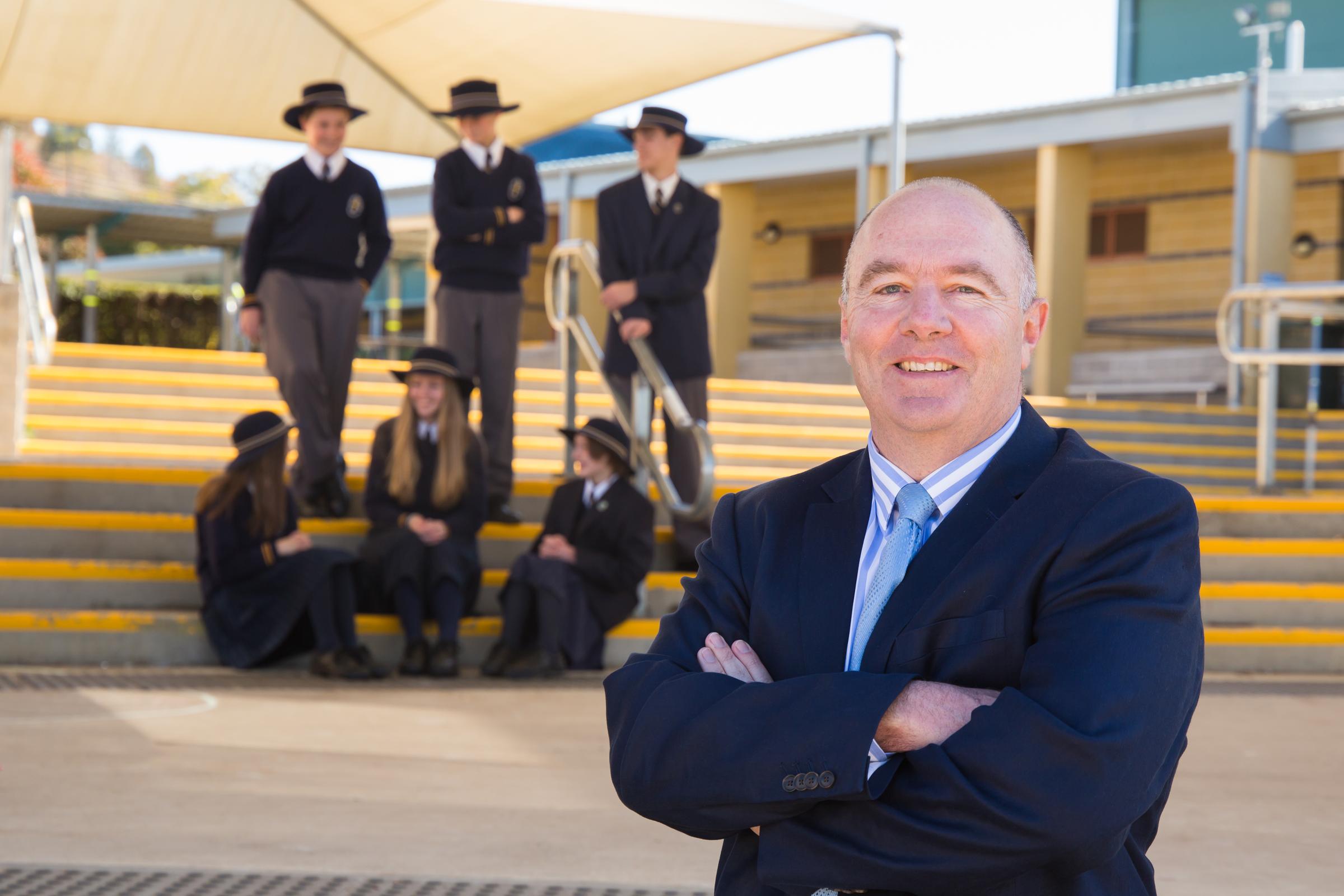Assistant Principal - Pastoral Care

The Challenges of Being a Better Person in the Face of Unkindness
As the outpouring of support for a young boy on the Gold Coast earlier this year revealed, bullying is a hot-button issue in schools and society at large, and rightly so. There is no place in a civilised society for people who seek to marginalise, humiliate or intimidate others as a means of perverse entertainment or as an exercise in power. We should all aspire to live justly, equitably and responsibly. We each have the right to be accepted for who we are and yet many in our culture struggle to do so.
The term ‘bullying’ has a very specific definition. During our workshops ‘Being a Better Person and a Better Friend’ with all students from Years 7 to 10, we clearly defined the term as:
“Bullying is an ongoing and deliberate misuse of power in relationships through repeated verbal, physical and/or social behaviour that intends to cause physical, social and/or psychological harm. It can involve an individual or a group misusing their power, or perceived power, over one or more persons who feel unable to stop it from happening. Bullying can happen in person or online, via various digital platforms and devices and it can be obvious (overt) or hidden (covert). Bullying behaviour is repeated, or has the potential to be repeated, over time (for example, through sharing of digital records). Bullying of any form or for any reason can have immediate, medium and long-term effects on those involved, including bystanders. Single incidents and conflict or fights between equals, whether in person or online, are not defined as bullying. (taken from the Australian Government’s website Bullying. No Way!)”
Students also learned that whilst people might be insensitive, thoughtless, immature, mean, and even aggressive this doesn’t necessarily constitute bullying. It doesn’t mean it should be ignored or not taken seriously, but the term ‘bullying’ doesn’t apply in all situations where you encounter unpleasantness in your relationships with others.
This is a vital concept for students to understand. An essential part of our growing up is learning how to navigate relationships with others and resolve challenging issues. If every uncomfortable experience is termed ‘bullying’ then a young person is made to feel powerless and lacking agency within their life. This idea is explored by the clinical psychologist Eileen Kennedy-Moore in an article published in Psychology Today:
"When we fail to distinguish between bullying and ordinary meanness, we trivialise the very serious cases of peer abuse … Also, calling every act of meanness bullying sends an unhealthy message: It says to kids, 'You're fragile. You can't handle it if anyone is even slightly unkind to you.'"
In an article titled ‘Parents Need to Know: Not all Unkindness is Bullying’ by Braden Bell, he provides some excellent advice about how parents can support their children to navigate some of the more emotionally challenging experiences in our lives. His advice occurred in the context of one of his children having a nasty experience at their part-time job. His first instinct was to call the manager and unleash ‘hell’. On reflection he took a different tact because he realised that the event didn’t actually meet the criteria of bullying.
‘How do we respond when a child encounters unkindness that isn't bullying? While the answers are as varied as the situations and the children involved, I've found some success with a simple question: "What are your choices?" And, as a follow-up, "What are the likely outcomes of those choices?"
Inevitably, the child wants to talk about the other person's behaviour. I try to listen and show empathy. Then I redirect by asking, "Yes, but what are your choices?" This can be empowering for the child. In my experience, acting with intention and agency brings hope and empowerment.
Sometimes a child can't come up with a good answer because they are too upset, or because they lack experience, or because something is counterintuitive. In the incident I mentioned earlier, my child felt trapped and struggled with how to respond. My wife and I discussed the situation, talked to our child and suggested possible options for addressing it. One of the suggestions helped fix the problem. Even more important, my child learned how to work through a challenge, something that would not have happened had we simply contacted the employer and accused the co-worker of bullying.
Learning to honestly evaluate complex situations, look at the dynamics of relationships and respond in a thoughtful way requires and develops discernment, honesty and self-awareness. We can help our children build those skills when we model them ourselves. That's what I had to remind myself recently.’
Without a doubt we live in a less kind world and culture. Studies show that the wealthier a society becomes the less likely people are to be empathetic towards each other and hence are ‘decompassioned’. Increasingly we have become self-centred and self-absorbed which is facilitated and heightened by social media. The consequence for young people is that their relationships with others are fraught with turmoil and thus challenging. This occurs at a time of their lives when they are developing their adult identity – a particularly delicate and self-conscious period of their lives. Providing them with the skills to manage their relationships needs to be the focus of both home and school so that they are able to strive to be the best person they can be.
Mr Mick Larkin - Assistant Principal - Pastoral
